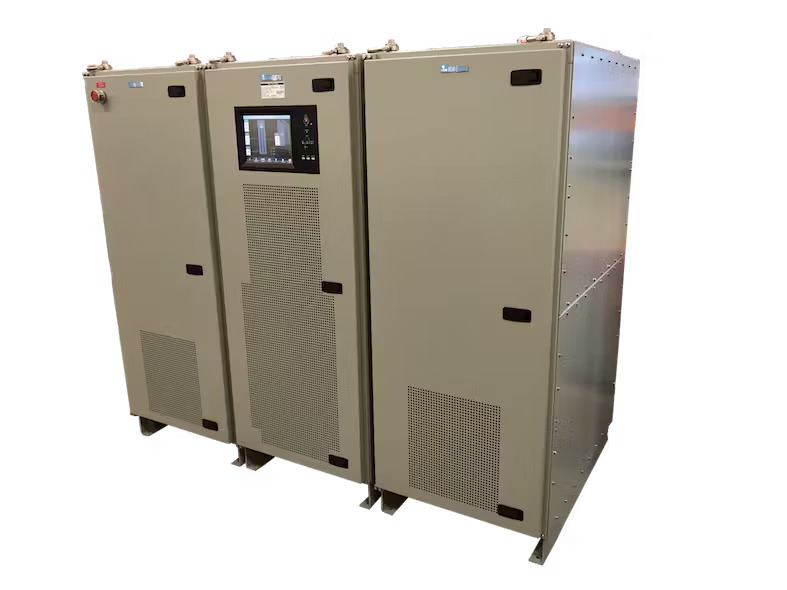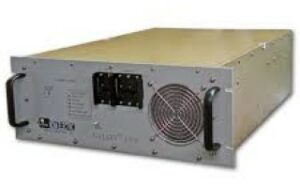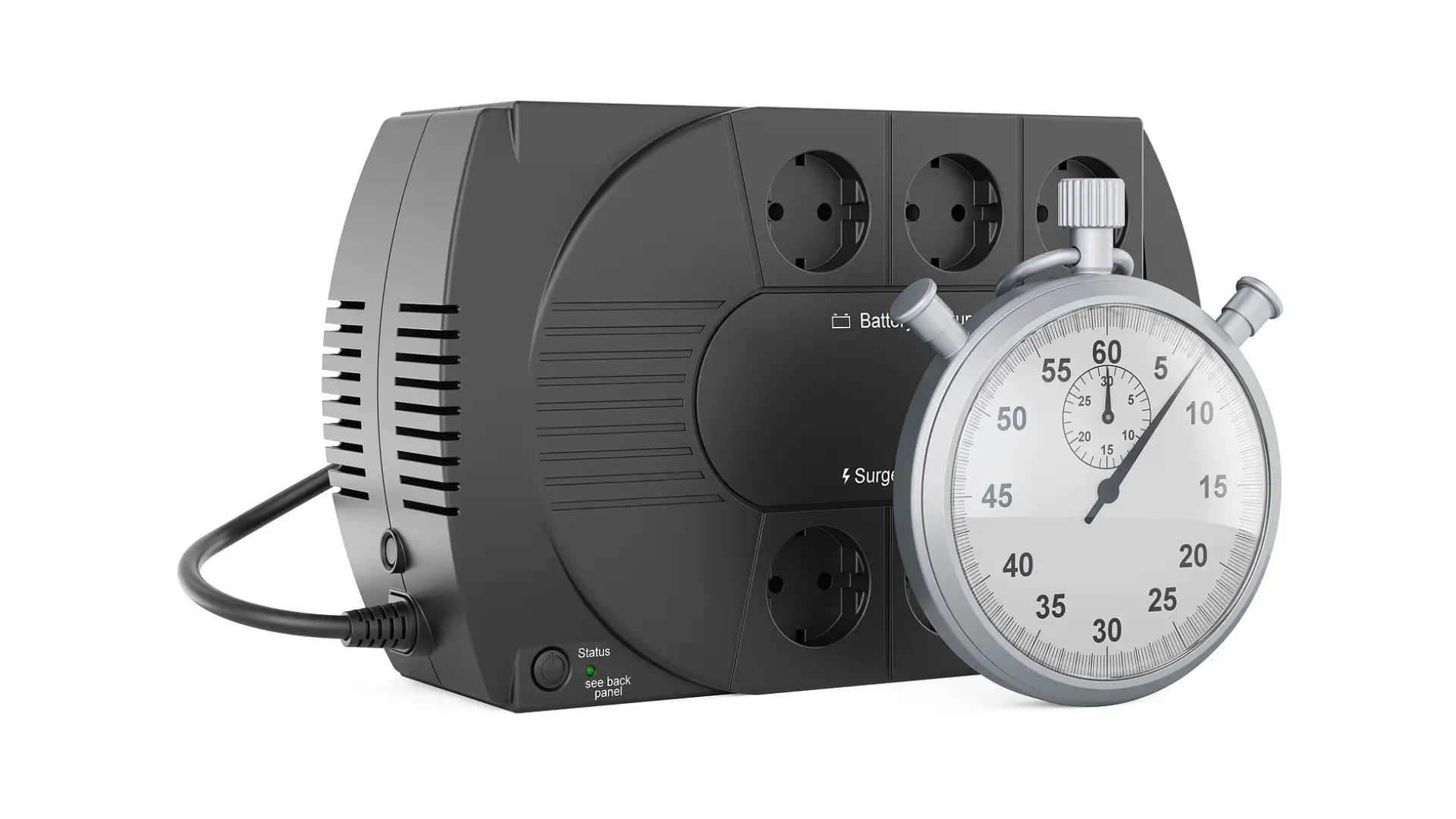
Military Uninterruptible Power Supply
In the realm of modern military operations, the consistent and reliable supply of power is not just a luxury but an absolute necessity. Whether on the battlefield, in a remote base, or within critical command and control centers, military operations depend heavily on a continuous source of electricity to power essential equipment, communication systems, data centers, and more. This is precisely where Military Uninterruptible Power Supply (UPS) systems come into play.
In this exhaustive guide, we will delve deep into the world of Military UPS systems, offering an in-depth exploration of their paramount importance, intricate components, diverse applications across various military settings, recent technological advancements, rigorous maintenance procedures, challenges and considerations, and how to select the right Military UPS system for specific requirements. By the end of this article, you will not only have a thorough understanding of how Military Uninterruptible Power Supply systems function but also why they are indispensable in ensuring uninterrupted power supply for mission-critical military operations.
Understanding the Importance of Military Uninterruptible Power Supply Systems
The Indispensable Role of Reliable Power in Modern Military Functions
In the contemporary landscape of military operations, reliable power sources are fundamental. The dependence on digital technologies means that almost every facet of military functionality, from command and control to logistics and surveillance, relies heavily on a consistent and uninterrupted supply of electricity.
This reliance underscores the critical role of power in maintaining operational effectiveness and strategic capabilities.
Assessing the Impact of Power Disruptions in Military Contexts
The interruption of power can lead to significant and often critical consequences in military settings.
These disruptions can result in communication failures, loss of crucial data, malfunctioning of vital equipment, and a compromised ability to respond to threats. The implications of such interruptions are far-reaching, affecting strategic operations, field safety, and overall mission success.
Implementing Uninterruptible Power Supply (UPS) Systems for Enhanced Resilience
To mitigate the risks associated with power outages and ensure continuity of operations, military organizations increasingly adopt Military Uninterruptible Power Supply (UPS) systems. These systems are designed to provide an immediate switch to backup power sources in the event of a power failure.
By doing so, they ensure that essential equipment and systems continue to function seamlessly, thus maintaining operational readiness and safeguarding critical data. The implementation of UPS systems is a strategic investment, enhancing the resilience and reliability of military operations in a world where digital technologies and power are deeply intertwined.
Components of Military Uninterruptible Power Supply Systems

Military Military Uninterruptible Power Supply systems are complex, engineered to ensure continuous power delivery under challenging conditions. These systems are composed of several critical components, each playing a unique role:
- Input Power Source: This is the initial electricity source for the UPS system. It typically includes grid power or a generator. The system conditions and distributes this power to connected equipment.
- Rectifier: The rectifier is a crucial component that converts AC (alternating current) from the input source into DC (direct current). This DC power is essential for two main purposes: charging the UPS batteries and supplying power to the inverter.
- Inverter: The inverter's primary function is to convert the DC power stored in the batteries back into AC power. This conversion is vital as most military equipment operates on AC power. The inverter ensures that in the event of a power interruption, the equipment continues to operate seamlessly.
- Battery Backup: Batteries form the core of the UPS system. They store energy and provide power during outages or interruptions in the primary power source. This backup ensures no break in power supply until the primary source or a generator is restored.
- Bypass Switch: This switch enables the manual or automatic shifting of power to and from the UPS system. It is particularly useful during maintenance activities or in isolating the system in the event of faults.
- Static Transfer Switch (STS): The STS is instrumental in transitioning power between the primary and secondary sources. Its role is to ensure that these transitions are smooth and uninterrupted, maintaining a constant power supply.
- Monitoring and Control Systems: These systems provide real-time information about the UPS system's performance, including battery health and power quality. They allow operators to monitor the system closely, make informed decisions, and respond quickly to any changes or issues.
Applications of Military Uninterruptible Power Supply Systems
Military Uninterruptible Power Supply systems are essential in maintaining operational continuity and efficiency in various military contexts. These systems are tailored to meet the unique challenges and demands of military environments, providing reliable power support in diverse scenarios.
Tactical Deployments
In field operations, portable UPS units are vital. They guarantee the functionality of crucial equipment, even in remote or hostile settings. This continuous power support is key for maintaining communication, navigation, and other mission-critical systems active, regardless of external power disruptions.
Command and Control Centers
In these nerve centers of military operations, UPS systems are critical. They provide a stable power supply to communication and surveillance equipment, as well as tools essential for decision-making. The uninterrupted power is crucial for real-time data processing, monitoring, and command activities, ensuring that operations are not hindered by power fluctuations or outages.
Data Centers and Communication Facilities
The digital infrastructure of the military, including data centers and communication hubs, heavily relies on UPS systems. These systems protect against power interruptions, which are pivotal in preventing data loss, communication breakdowns, and ensuring the integrity of digital operations. Continuous power is essential for the storage, processing, and transmission of sensitive and classified information.
Military Vehicles and Aircraft
In military vehicles and aircraft, compact UPS systems are used to protect sensitive electronic systems. These systems ensure the operational efficiency and safety of these assets during missions. They safeguard critical components from power fluctuations, which is essential in environments where electronic systems are crucial for navigation, communication, and combat operations.
Technological Advancements in Military Uninterruptible Power Supply Systems
Technological advancements have significantly transformed military Uninterruptible Power Supply (UPS) systems, enhancing their efficiency and adaptability in critical operations:
Lithium-ion Battery Technology
This is a groundbreaking shift from traditional lead-acid batteries. Lithium-ion batteries offer superior energy density, meaning they can store more energy per unit weight. This is crucial for military applications where space and weight are at a premium. Additionally, these batteries have a longer lifespan, reducing the need for frequent replacements, which is especially beneficial in challenging and remote military environments. Their faster recharge times are also pivotal in operations where rapid response and readiness are essential.
Modular UPS Systems
These systems represent a significant evolution in UPS technology. Modular designs allow for more flexible and scalable power solutions. This means that as the power needs of a military operation change, the UPS system can be easily adjusted to meet these new requirements. This adaptability is vital in dynamic military contexts where power needs can fluctuate based on the mission, location, and other operational variables.
Energy Efficiency and Green Initiatives
There's a growing emphasis on reducing the environmental footprint of military operations. Modern UPS systems are being designed with this in mind, incorporating features that minimize energy consumption. This not only supports sustainability efforts but also can enhance operational efficiency by reducing fuel or power needs. Advanced power management features in these UPS systems ensure optimal use of energy, contributing to both cost savings and environmental responsibility.
Cybersecurity Features
In today's digital age, the threat of cyberattacks on critical military infrastructure, including power systems, is a significant concern. Modern Military Uninterruptible Power Supply systems are increasingly equipped with sophisticated cybersecurity measures. These features are designed to safeguard the systems against digital threats, ensuring the integrity and reliability of the power supply in sensitive military operations. Given the strategic importance of uninterrupted power in military contexts, such cybersecurity enhancements are critical for national security.
Maintenance and Testing
Challenges and Considerations
Selecting the Right Military UPS System
Selecting the Right Military Uninterruptible Power Supply System: A Comprehensive Guide
- Assessing Power Needs and Scalability: It's crucial to choose a UPS system that not only meets the current power demands of the military application but also has the flexibility to scale up. This foresight is essential to accommodate future expansions or increased power needs without necessitating a complete system overhaul.
- Environmental Resilience and Adaptability: Military operations often take place in extreme and unpredictable environments. Therefore, the UPS system must be robust, capable of operating effectively under severe conditions such as extreme temperatures, humidity, dust, and vibration. This involves selecting a system that has been rigorously tested and proven to maintain functionality in these challenging environments.
- Compliance with Military Standards and Certifications: Military equipment must adhere to stringent standards to ensure reliability and safety. Confirming that the UPS system is compliant with relevant military standards and certifications is a non-negotiable aspect. This compliance guarantees that the system can withstand the specific rigors of military use and ensures it meets operational and safety benchmarks.
- Ensuring High Reliability and Redundancy: In military contexts, the reliability of a UPS system is paramount. A high-quality system should have built-in redundancy features to safeguard against failures. This redundancy ensures that in the event of a component failure, the system can continue to operate seamlessly, thereby providing an uninterrupted power supply. This aspect is critical in scenarios where power supply continuity is vital for mission-critical operations.
- Maintenance and Support Considerations: Regular maintenance and prompt support are essential for the longevity and effectiveness of a UPS system in military applications. Opt for a system that offers easy maintenance and has a support structure in place. This includes accessible technical assistance, spare parts availability, and the provision for regular updates or upgrades to keep the system functioning optimally.
- Cost-Efficiency and Lifecycle Analysis: While initial costs are a consideration, it's equally important to evaluate the total cost of ownership, including maintenance, upgrades, and potential downtime costs. A system that is cost-effective over its entire lifecycle will prove more beneficial in the long run.
- Compatibility with Existing Military Infrastructure: The UPS system should seamlessly integrate with existing military infrastructure. Compatibility with current power systems, communication networks, and military hardware is crucial to ensure efficient and hassle-free operation.
Frequently Asked Questions (FAQs)
1. What is a Military Uninterruptible Power Supply (UPS) system?
A Military Uninterruptible Power Supply system is a critical power protection device used in military operations to ensure a continuous and uninterrupted power supply to mission-critical equipment, communication systems, data centers, and more. It safeguards against power interruptions, fluctuations, and surges.
2. Why are Military Uninterruptible Power Supply systems essential in military operations?
Military Uninterruptible Power Supply systems are crucial because they provide uninterrupted power supply, ensuring that critical equipment remains operational even in hostile or remote environments. Power interruptions can lead to communication breakdowns, data loss, and compromise the safety of personnel in the field.
3. How do Military Uninterruptible Power Supply systems work?
Military Uninterruptible Power Supply systems work by conditioning and distributing power from the input source (grid or generator) to connected loads. They use components like rectifiers, inverters, batteries, bypass switches, and static transfer switches to ensure a seamless transition to backup power sources during interruptions.
4. What are the primary applications of Military Uninterruptible Power Supply systems?
Military Uninterruptible Power Supply systems find applications in various scenarios, including tactical deployments, command and control centers, data centers, communication facilities, military vehicles, and aircraft. They are deployed wherever a reliable power source is critical for operations.
5. What are the recent technological advancements in Military Uninterruptible Power Supply systems?
Recent advancements in Military Uninterruptible Power Supply systems include the adoption of lithium-ion battery technology for higher energy density and longer lifespan, modular UPS systems for scalability, energy-efficient designs, and cybersecurity features to protect against digital threats.
6. How do I maintain a Military Uninterruptible Power Supply system?
Regular maintenance procedures for Military Uninterruptible Power Supply systems involve checking battery health, inspecting connections, and ensuring proper cooling. Load testing is also essential to verify the system's capability to handle its rated load.
7. What challenges do Military Uninterruptible Power Supply systems face?
Military Uninterruptible Power Supply systems face challenges such as harsh environmental conditions, weight and size constraints in military vehicles and aircraft, cybersecurity threats, and budget constraints. Addressing these challenges requires careful consideration during system selection and deployment.
8. How do I select the right Military Uninterruptible Power Supply system for my needs?
Selecting the right Military UPS system involves considering factors such as capacity and scalability, environmental adaptability, compliance with military standards, and the level of reliability and redundancy required for specific applications. It is essential to balance performance with budget constraints.
9. Are Military UPS systems compliant with military standards?
Yes, Military UPS systems are designed to meet stringent military standards and certifications to ensure their reliability and suitability for military applications. When procuring a system, it's crucial to verify its compliance with relevant standards.
10. Can Military UPS systems be customized for specific requirements?
Yes, many Military UPS systems offer customization options to tailor them to specific operational needs. It's essential to work closely with manufacturers or suppliers to ensure that the system meets precise requirements.
Conclusion
In summarizing my perspective on the role of Military Uninterruptible Power Supply (UPS) systems, I've come to appreciate their profound significance in modern military operations. These systems are much more than just technical setups; they are the lifeline of military efficiency, ensuring that every critical moment and decision is supported by reliable power.
The advancements in these systems, including the adoption of lithium-ion batteries and robust cybersecurity measures, are not mere technological leaps but essential adaptations to the evolving nature of warfare and environmental challenges.
From my viewpoint, the careful selection, diligent maintenance, and strategic implementation of Military UPS systems reflect a deep commitment to excellence and foresight in military operations.
These systems, often unnoticed yet crucial, are the backbone of operational continuity, ensuring that power – a fundamental aspect of any military operation – is always available and dependable. The role they play behind the scenes, maintaining the uninterrupted flow of power, is as vital as any tactical maneuver or weapon in the realm of defense, making them indispensable in the sophisticated landscape of military strategy.
Sources
https://www.verifiedmarketreports.com/product/military-ups-power-supply-market/
continue reading
Related Posts
Uninterruptable Power Supplies In today's world, where technology keeps us […]
Uninterruptible Power Supply For Laptop In today's fast-paced digital world, […]
Small Uninterruptible Power Supply In today's digital age, where connectivity […]



